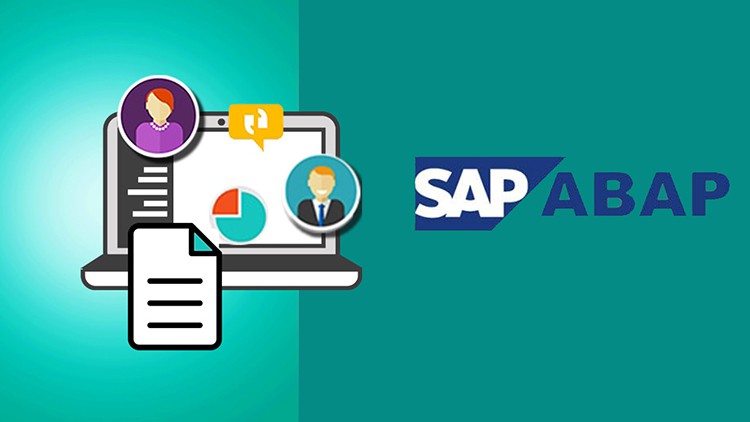Introduction
SAP ABAP (Advanced Business Application Programming) is a programming language developed by SAP for building and customizing applications within the SAP ecosystem. It plays a crucial role in developing reports, interfaces, enhancements, and forms, allowing businesses to tailor SAP modules to their specific needs. ABAP enables seamless data integration, efficient automation of business processes, and the creation of custom applications that improve overall functionality. Its versatility makes it indispensable for businesses relying on SAP solutions for their enterprise resource planning needs. Refer to the SAP ABAP Training program for more information.
What Is SAP ABAP?
SAP ABAP (Advanced Business Application Programming) is a high-level programming language created by SAP for developing applications within the SAP environment. It is primarily used for customizing SAP software to meet business requirements, integrating with various SAP modules like SAP MM, SD, FICO, and HR.
ABAP is the backbone of SAP’s development environment and allows developers to create reports, interfaces, enhancements, and forms. It is used to design both standard and custom applications that run on the SAP NetWeaver platform. ABAP supports modularization, object-oriented programming, and a variety of data-handling techniques.
One of the core features of ABAP is its ability to interact with SAP databases, retrieve and manipulate data, and display it in user-friendly formats. It plays a crucial role in business process automation and is essential for organizations seeking to tailor their SAP solutions to their specific needs. ABAP developers are in high demand in industries that use SAP solutions.
Why is ABAP Important for All SAP Modules?
ABAP (Advanced Business Application Programming) is a crucial component of SAP’s ecosystem, playing a central role in the development and customization of all SAP modules. Its importance stems from its ability to enhance, integrate, and tailor various SAP applications to meet specific business needs across industries. Aspiring professionals can check out the ABAP Certification course to learn more about this SAP component.
Here’s why ABAP is vital for all SAP modules:
1. Customization of SAP Modules
SAP modules, such as SAP MM (Materials Management), SAP SD (Sales and Distribution), SAP FICO (Financial Accounting and Controlling), and others, come with predefined functionalities. However, each organization has unique business processes that may require specific features. ABAP allows developers to customize these modules, tailoring reports, screens, workflows, and logic to better align with the company’s requirements.
2. Data Manipulation and Integration
ABAP facilitates efficient data retrieval, manipulation, and integration within the SAP environment. It enables the creation of custom programs that interact with SAP databases, process large volumes of data, and perform complex calculations. It also integrates data across different SAP modules, ensuring consistency and accuracy. For example, an ABAP program can pull data from SAP MM for inventory management and SAP FICO for financial reporting.
3. Development of Custom Applications
While SAP modules provide robust out-of-the-box features, many businesses require custom applications or enhancements. ABAP allows the development of bespoke applications seamlessly integrated with existing SAP modules. These custom applications might include specialized reports, complex calculations, and user-specific interfaces, which are essential for better decision-making.
4. Efficient Automation
ABAP is used for automating business processes across all SAP modules. For example, custom programs can automate order processing in SAP SD, generate invoices in SAP FICO, or trigger purchase orders in SAP MM. This automation improves efficiency, reduces manual errors, and accelerates workflows.
5. Enhanced Reporting and Analytics
ABAP is integral to generating customized reports that provide valuable insights. Businesses rely on ABAP-driven reports to track key performance indicators (KPIs), compliance, inventory levels, financial performance, and more. These reports can aggregate and present data from different SAP modules in user-friendly formats.
In short, ABAP is essential for leveraging the full potential of SAP modules. The SAP ABAP Training in Noida enables aspiring SAP professionals to learn more about ABAP. It enables organizations to fine-tune their SAP systems, ensuring they are tailored to their operational needs and business goals, making it indispensable for businesses using SAP solutions.
Conclusion
To sum up, ABAP is a fundamental programming language that drives SAP module customization, integration, and automation. Its ability to tailor SAP applications to specific business needs, facilitate data manipulation, and enhance reporting makes it essential for organizations leveraging SAP systems. ABAP ensures that SAP solutions align with unique business processes, improving efficiency, accuracy, and decision-making across various industries.









